African mason spider: Weaves an entire burrow from its web, which turns into a death trap for creatures passing by (8 photos)
There is enough information on the arthropod; it is being actively studied and bred in captivity. But I still don’t understand why in literature he was called the mason? The English name literally translates to "African hatch spider", and this is much closer to the truth. 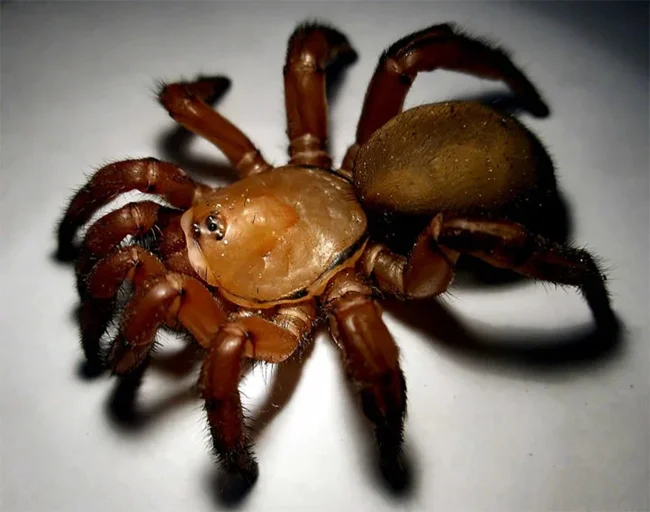
I'll tell you more, the mason spider doesn't like stones! His domain: the flat and uniform prairies of South Africa, none of the 12 species of this genus live in the mountains or on the cliffs. But animals use hatches very actively. 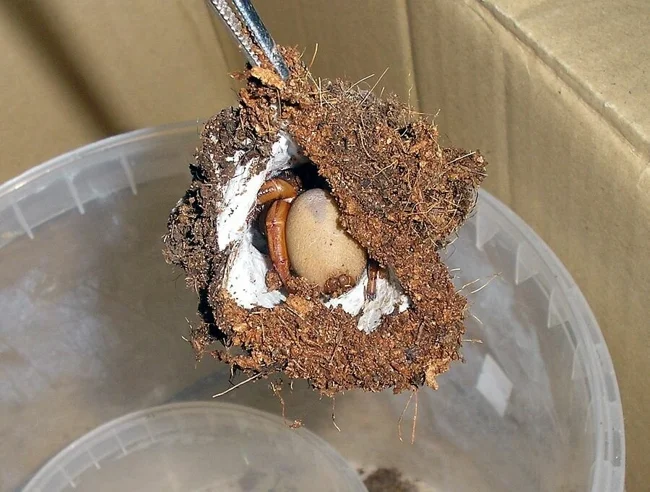
The mason spider is cunning even by the standards of other ambush spiders. Normal eight-legged animals hang out catching nets and wait for an insect to fly by. They are wet by the rain, tossed by the wind and burned by the sun. And the mason sits in his cozy home and is comfortable. 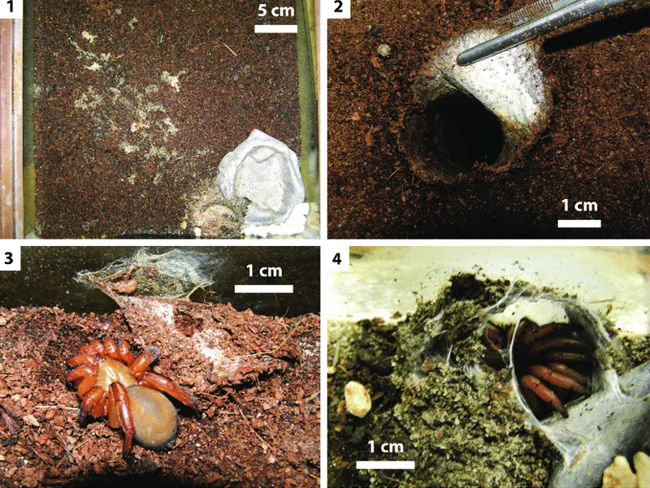
True, he will have to work hard first. Ordinary spiders weave a web in a few hours, but a mason works up to 15 days. Its home is a hole lined with cobwebs, which the predator digs out independently using large claws on its pedipalps. The spider wraps the unnecessary material in a web and throws the bags outside the future home. Disregard for the environment! 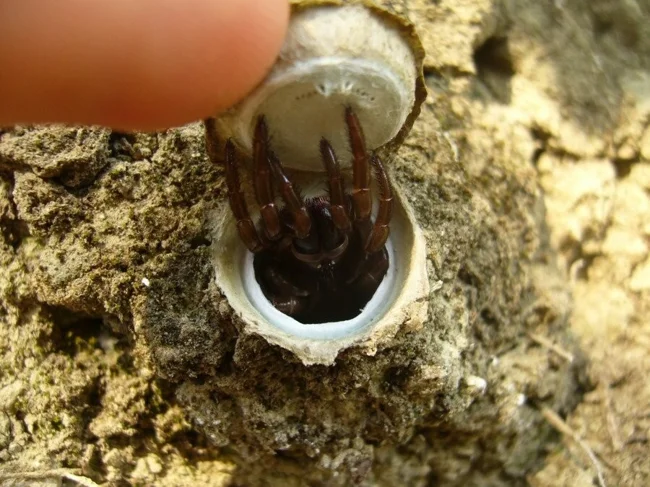
The younger and smaller the spider, the faster it digs out a hole.
After hard work, the animal becomes restless. She just needs to weave a hatch-lid, sprinkle it with sand, hide in a kennel and wait for guests. The spider senses vibrations in the soil very subtly, from which it can understand the size and manner of movement of its prey. When an insect or other invertebrate approaches the entrance, the hospitable owner jumps out and invites the animal into his home. 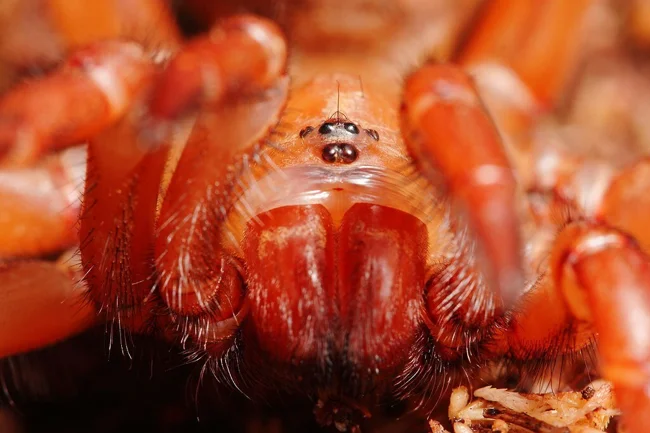
The victim has very little chance of rejecting the offer. The spider specifically chooses a guest weaker than itself, this is not difficult when you yourself are about 4 centimeters in length. Don't forget about the poison, which is quite toxic and has a paralyzing effect. One thing is good: the underground spider does not attack people and other large animals; it does not like to take unnecessary risks. 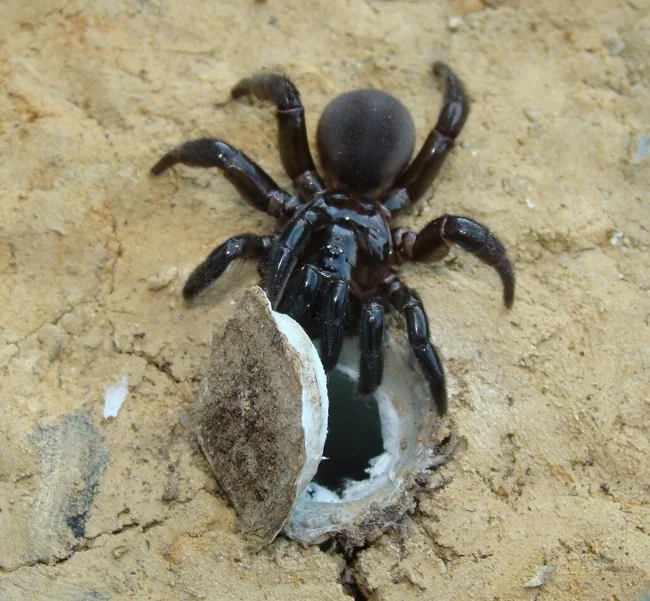
The only ones who are ready to hunt such a dangerous predator are wasps. They are inferior to the spider in physical strength, but superior in speed and agility. With a quick injection into the nerve plexus (read: brain), they paralyze the spider and fill its body with larvae. Terrible death. 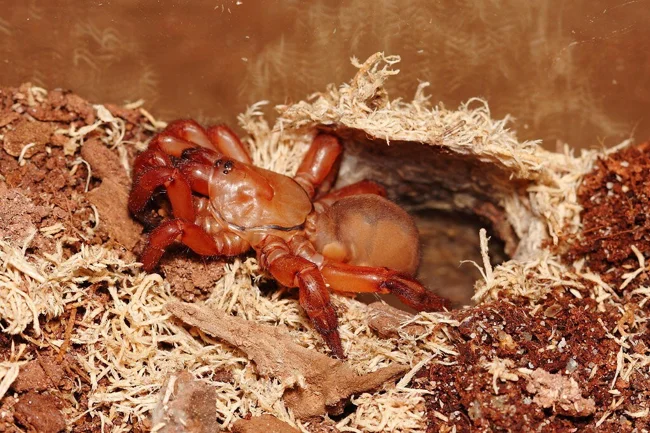
Most often, such a terrible fate goes to the males, because during the mating season they leave their hidden shelters and go looking for love. Finding a camouflaged bunker is difficult, but even more difficult is showing that you are a potential lover and not food. For this, masons developed a password: a series of taps that must be struck from a certain distance from the nest. If the male does everything right, the female will voluntarily let him in and, most likely, not even as dinner! 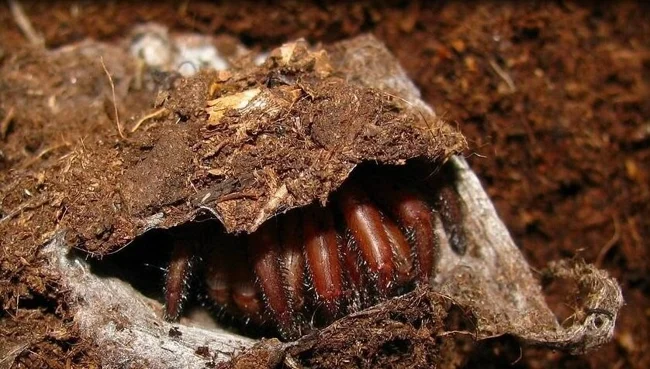
Then everything is standard: transfer of genetic material and escape, until the owner of the home changes her mind. And she can change her mind quickly. In the wild, males do not live long; the world is too dangerous for them. But lucky enough ladies can live up to 10 years!
